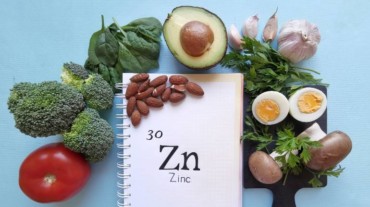
Prenatal vitamins and minerals are supplements required for a healthy pregnancy. They play an important role in maintaining a healthy body. Women who plan to get pregnant or are pregnant should take these vitamins. Ideally, these supplements should be taken 12 weeks before conception, so that if there is a deficiency of these nutrients in the body, it can be corrected on time to carry a healthy baby.
Intake of folic acid prevents neural tube (brain and spine) defects. It is also known to support general growth and development of the fetus and placenta. Association of recurrent spontaneous abortion and folate deficiency has also been found. It is recommended to take these in doses of 400 micrograms, at least 12 weeks before conception and should be continued for another 12 weeks after conception.

Foods rich in folic acid include broccoli, brussels sprouts, leafy greens such as cabbage, kale, spring greens and spinach, peas, chickpeas, kidney beans and breakfast cereals fortified with folic acid.
Vitamin D is linked with the good health of bones and muscles, as it regulates calcium and phosphate in the body. Similarly, it helps in building bones and teeth of the fetus. The daily requirement is 600 iu. Sunlight is the best natural source of vitamin D, but it isn’t known how much time do we really require in the sun, to make adequate sunshine vitamin. Some rich sources of vitamin d are oily fish – such as salmon, sardines, red meat, liver and egg yolk.
Similar to vitamin D, calcium is vital for bone and teeth health, and plays an important part in making bones and teeth of the fetus. Daily requirement of calcium is 1000 milligrams per day. Foods rich in calcium are milk, cheese, yogurt, sardines, dark green leafy vegetables.
It is very important to have an iron-rich diet, as iron carries and delivers oxygen from blood to the fetus. Deficiency of iron causes anemia, which is linked to adverse outcomes of pregnancy, low birth weight, etc. Thus, it is important to correct anaemia before conception and to have an iron- rich diet all through pregnancy. Lean meat, green leafy vegetables, dried fruit, iron-fortified cereals and nuts are rich sources of iron.

Vitamin C keeps cells healthy and protects them. It is also found to increase immunity, hence providing protection from infections during pregnancy. It is found in a variety of citrus fruits. Tomatoes,broccoli, and strawberries are also good sources of this vitamin.
Also, read: Ask the Experts: Is it safe to be on a vegan diet during pregnancy?
Both vitamin B12 and B6 help in the formation of red blood cells, thus playing an important role in maintaining haemoglobin. Vitamin B12 also plays an important role in maintaining good health of the nervous system. Meat, fish and poultry are rich sources of vitamin B.
Also, read: A handy guide to planning a healthy pregnancy
Select Topics of your interest and let us customize your feed.
PERSONALISE NOWMinerals like zinc, magnesium, and iodine are also important for the health of the fetus. Zinc deficiency is associated with poor pregnancy outcomes, and increases the risk of preterm delivery. Foods that are a good source of zinc include meat, shellfish, dairy foods such as cheese, bread and cereal products.

Magnesium deficiency also increases the risk of preterm labour and is also associated with fetal growth restriction. Foods that are good sources of magnesium include nuts and seeds, green leafy vegetables, broccoli, bananas, beans, soybeans, mushrooms, milk and egg yolk.
Iodine is also an important mineral that contributes to the healthy brain development of the fetus. Iodized table salt, dairy products, seafood, meat and eggs are good sources of iodine.
Eating a healthy, balanced nutritional diet provides all the important vitamins and minerals to the body. But it is important to supplement to cover up any nutritional deficiency, especially if one desires a healthy pregnancy.